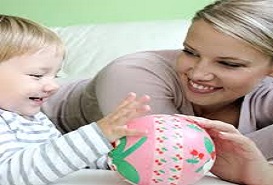Children from around nine onwards come under intense peer pressure. And if this was pressure to do better at school, to be a kinder family member or to excel at sport, nobody would have a problem. But of course it’s negative peer pressure that we all dread. At the The Elite Nanny Company we know that parents find this a difficult time, so here’s our comprehensive guide to dealing with peer pressure
Talk about advertising and the media
Showing your child how every part of the world, from billboards to magazines, from Facebook to TV programmes is trying to influence us to take an action they are promoting. Buy now, use this, connect, share, like … these forces influence us every day. Helping your child to understand how this is part of peer pressure can reduce the effect the media has on their decisions.
Build a community
Surrounding your family with the kind of role models you’d like them to have is the simplest way to ensure they feel positive peer pressure. Your nanny is a prime element in this process because:
- She is close to your children in age
- She sees them with their peer group and can spot danger signs
- They see her with her peer group!
As a result, the right nanny candidate can be a hugely powerful influence for your children, leading by example and also being somebody they can go to when they feel conflicted by a gap between their ideals and their peer group’s behaviour. Other influences like youth groups, church and cultural activities and voluntary work can all help your child resist negative pressures.
Develop your child’s self-esteem
Children with interests and passions, a positive self-image and an accepting family are much more likely to be able to withstand negative peer pressure. Help your child to develop their talents, to engage with interests outside school and giving them a sense that they are loved and valued just as they are is a great safeguard when peer pressure tries to suggest they need to change to fit in.
Have better conversations
Children often feel interrogated rather than listened to. Making time for each child to simply talk, without limits and without commentary, is often the best way to help your child explore what’s happening in their world and how they want to respond. It allows a youngster to ‘try out’ various scenarios to see where they end up, a major life skill that helps with mature decision making. Also, when things go wrong, allowing your child to talk through their bad decisions can improve their performance next time.
Avoid problems
It’s a real skill to spot the danger signs ahead, but working with your nanny to recognise where problems loom, can be a key support to helping your child. If a classmate seems to be bullying or disrespectful or if a childhood friend is developing difficult characteristics such as lying, skipping school or not doing homework, it’s time to look for alternatives, to ensure your child has other friends with better habits and to commit to supporting them by rewarding good behaviour and developing their self esteem so that they are immunised against the perils of negative peer pressure.




